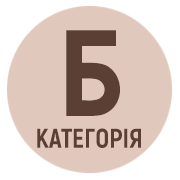EUGENE TSEHELSKYI MUSICOLOGICAL HERITAGE IN LINE WITH THEPROFESSIONALIZATION OF GALICIAN UKRAINIAN MUSICAL CULTURE OF THE INTERWAR PERIOD
Keywords:
Galicia, FUProM (Federation of Ukrainian professional musicians), Prague, performing, musical criticism, national-cultural traditions.Abstract
In the article the musico-logical heritage of one of therepresentatives of the Ukrainian diaspora, Prague school studentEugene Tsehelskyi in terms of problems of professional music ofGalicia interwar period. Attention is focused on journalistic heritagemusicologist, which defines the problematic content and direction ofhis creativity and life position. In the formation of musical professionalism in Galicia played asignificant role "Prague school". Students of this school have raisedthe Ukrainian culture on a high European level through the works ofcomposer, musical and critical activity, performance mastery,contributed to the education of national consciousness, knowledge of human values and spiritual enrichment of the nation. In the ''Art Gallery of Portraits'' a figure of Eugene Tsehelskyi, alumnus of the Prague Conservatory, director of Przemysl branch of the Higher Music Institute named after Lysenko, scientist, music critic, a concertviolinist and teacher – a vivid example of Galician figures that form the foundations of professionalism in terms of national revival. Journalistic and methodical works of Tsehelskyi were aimed at raising the level of Ukrainian cultural consciousness, raised the issue of education and education of the population, showed the transition from amateur to professional art. The process of formation and development of Ukrainian musical cultureof Galicia in the first half of the XX century continue to attract the attention of art critics, that reflected in numerous scientificstudies and publications. These trends identified prioritymusicological interests and prompted many researchers to studyregional peculiarities of Ukrainian art and its review in close relationship with European culture. But music and critical legacy E. Tsehelskyi has not become a subject of scientific study and generalization, and that's why requires more careful study of the sources and archival materials that will organize creative achievements one of the founders of the Ukrainian art on the mainland, as Ukraine and abroad.
References
Голдак Т. Особливості музичного життя українців Перемишля ХІХ – початку ХХ століття // Україна: культурна спадщина, національна свідомість, державність. – 2008. – № 17. – С. 94–99.
Попович О. Українське музичне життя Перемишля (1919–1999) : Дис... канд. мистецтвознавства: 17.00.03 / НАН України; Інститут мистецтвознавства, фольклористики та етнології ім. М. Т. Рильського. – Київ, 2003. – 169 с. – Бібліогр.: арк. 162–169.
Рудницький А. Українська музика: Історико-критичний огляд. – Мюнхен: Дніпрова хвиля, 1963. – 406 с.
Цегельський Є. Музичне життя Праги // Українська музика. – Рік І. – 1937. – Ч. 3. – Травень. – С. 3.
Цегельський Є. Музичне життя Праги // Українська музика. – Рік І. – 1937. – Ч. 4. – Червень.– С. 51.
Цегельський Є. Микола Лисенко. В сорокові роковини смерти великого композитора // Київ: Журнал літератури і мистецтва. – Філадельфія. – 1952. – Ч. 5–6. – Вересень-грудень.– С. 280–283.
Цегельський Є. Наші концертові болячки // Діло. – 1939. – Ч. 173. – 2 серпня. – С. 5.
Цегельський Є. Наші концертові болячки // Діло. – 1939. – Ч. 174. – 3 серпня. – С. 4.
Цегельський Є. 60-ліття вічно молодого композитора. Станіслав Людкевич. // Діло. – 1939. – Ч. 20. – 29 січня. – С. 7.







